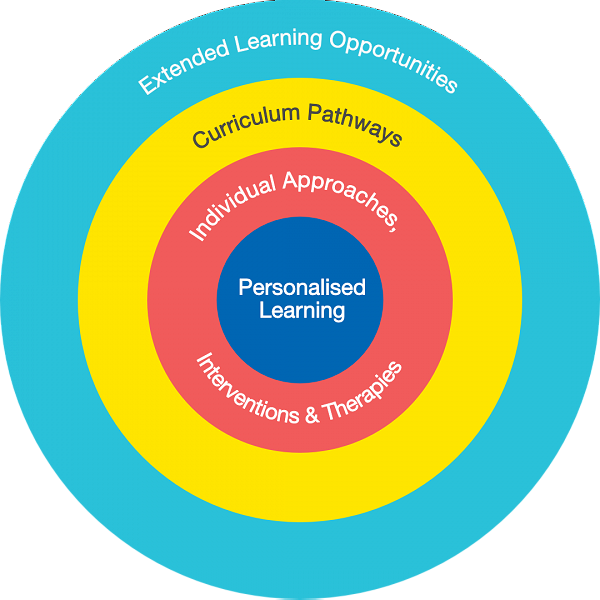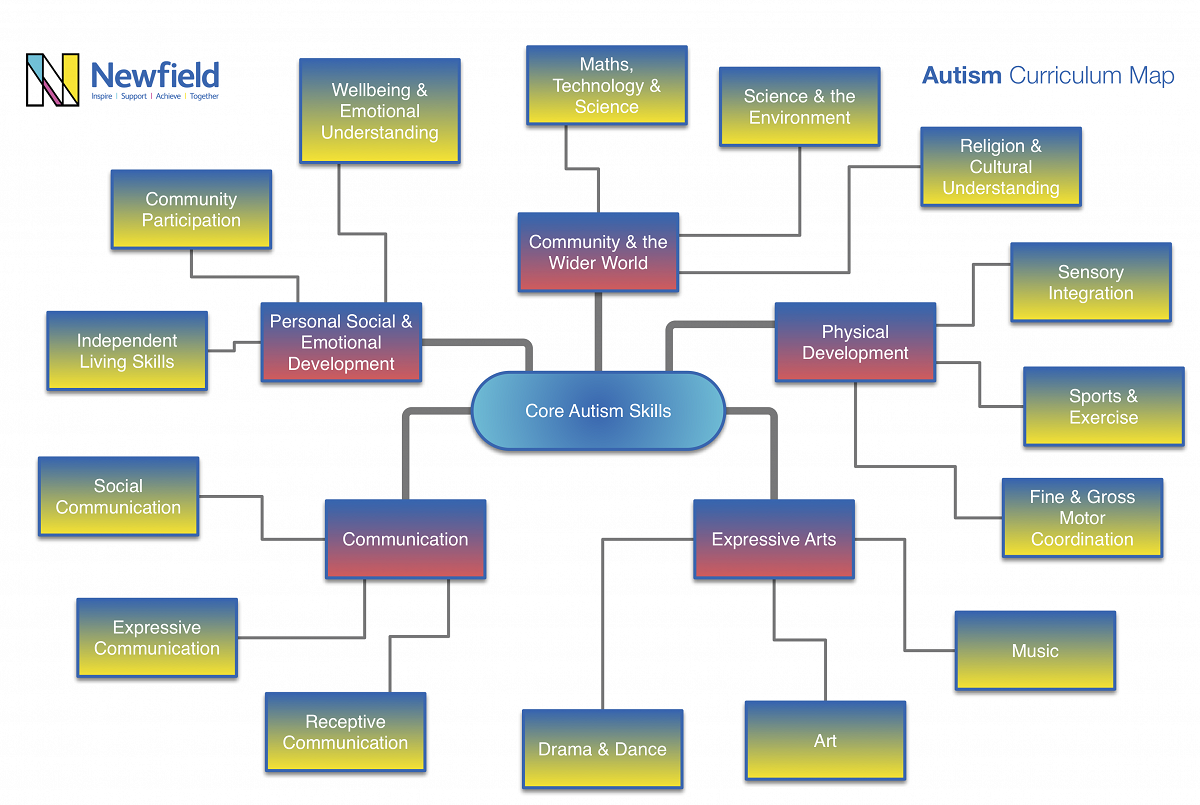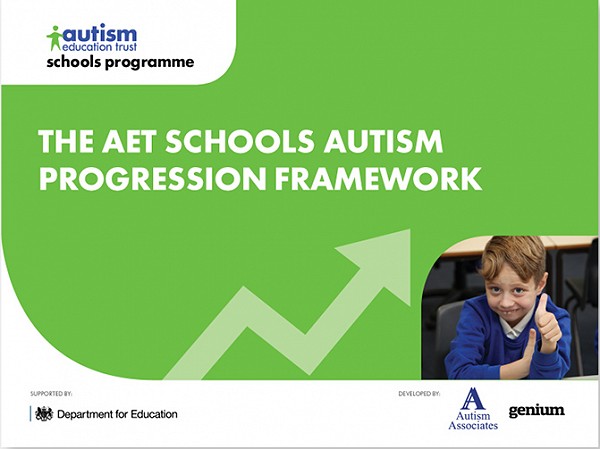Curriculum, Assessment & Accreditation
The school for Autism @ Newfield aims to provide a broad and balanced curriculum which is tailored to suit the learning style of learners on the autism spectrum.
Whole Curriculum
The school offers a broad and balanced curriculum, which is tailored to suit the learning style of learners on the autism spectrum (see school curriculum pages) and a programme of enrichment to ensure each learner has a rich, varied and interesting school experience.
For our learners at Key Stage 4 and Key Stage 5 there are a variety of accreditation routes open to them (see accreditation)

The School Environment - Autism
Various environments in school are equipped to deliver specialist subject/areas of learning. In the School for Autism, all classes are designed based on the TEACCH (Treatment and Education of Autistic and Communication handicapped Children) approach. The layout within the classroom communicates meaning and intention to learners by the way in which it is arranged. In each class there are group areas, communication areas, work areas and a play/ leisure area. Work systems are used to promote independence and provide visually clear systems that enable learners to understand what is required without relying heavily on written or spoken language.
The environment is designed to accommodate some of the sensory differences experienced by our learners by providing natural light, sensory equipment and break out spaces for individualised work and communication activities.
The accommodation in the School for Autism also had a sensory studio with an immersive learning environment to create experiences to complement a range of themes. The hall is used for PE and a section of the hall is always available for a sensory circuit so learners are able to access activities according to their personalised sensory diet.
A Food Tech room is also available for learners to develop their skills in independence and home management and there are 5 additional group rooms equipped with large screen interactive whiteboards that are used for group work or speech and language therapy work.
Outdoors there are basket swings or outdoor gym equipment for learners to use at break times and all learners can access the sensory garden and outside track for walking or running.
Learners are also able to access the school minibus to participate in a range of community based activities such as shopping, outdoor activities, swimming and other leisure venues or links with mainstream partner schools.
Specialist Curriculum
The School for Autism specialises the way in which the curriculum is delivered by using teaching approaches that optimise the learners access to the curriculum. See more about our Teaching approaches. The emphasis within the specialist curriculum is on an offer that provides opportunity to generalise learning in to settings beyond the classroom. This differs according the age of the learners but may range from practising communication skills when asking for a drink and snack at the local soft play centre through to paying for shopping in the supermarket. The curriculum offers opportunities for physical development and exercise regularly and this can aid the sensory regulation of learners while also promoting physical well-being and fitness.

Our Autism curriculum aims to provide a broad and balanced curriculum, which is tailored to suit the learning style of learners on the autism spectrum.
The Autism curriculum has at its core the skills that underpin the development of all autistic learners based around diagnostic criteria from DSM V
At the School for Autism @ Newfield we consider our curriculum to be dynamic and evolving – we want to respond to the interests of our learners, current events and community activity. It is our aim for all our learners to achieve our whole curriculum aims and be active members of their community.
Structure and Themes
We know through research that autistic learners often benefit from visual support to their learning. We strive for this through all aspects of learning and promote clear beginnings and endings to activities and themes in line with our TEACCH approach. It is vital to ensure generalisation of skills so our approach to delivering the curriculum is centred around leaners applying the skills and ideas they are learning into a range of situations
Responsiveness
We have taken the conscious decision not to plan themes in advance. This is to allow us to respond to current events and learners’ preferences on an on-going basis.
We also want to our teaching team to be enthused and passionate about what they are delivering so to promote creativity and sharing ideas teacher’s work in ’planning teams’ to develop a theme to engage and motivate the learners on a termly or half termly basis.
Pedagogy and themes
Themes are selected to provide interest and variation to our learners. We seek to promote flexibility of thought by introducing new topics, concepts and vocabulary regularly. We are always mindful of meeting the autism needs of our learners. Themes have clear beginnings and endings by each one starting with a ‘hook’ to engage the learner and to signify to them that a change in theme is occurring. This will be a diverse range of events but will be centred around one of our curriculum elements of:
- Communication, language and literacy
- Personal, Social and Emotional Development
- Community and the Wider the World
- Physical and Sensory Development
- Expressive Arts
The introduction activity could be as diverse as a trip to the zoo, a visit from a theatre troupe, a sensory session, musicians or sports. Teachers will then deliver a sequence of carefully planned and personalized lessons and activities with work developing and based on the opening activity. The theme culminates with a clear closing activity which brings the learning together and promotes social experiences of sharing and togetherness
How the curriculum meets the needs of our learners
Communication, Language & Literacy
Communication, particularly the social aspects of communication, is a barrier for learners with autism. It forms a core element of our curriculum and we work on developing communication skills in every aspect of the school day
Personal, Social & Emotional Development
Being able to be adaptable and responsive is an important skill for learning and living with independence. It is an area where learners with autism can experience significant challenge and is a core feature of our Newfield Curriculum for Autism.
Community & the Wider World
In order to live a full, active and happy life learners need to develop a solid understanding of their place in the world. Learners with autism typically develop a limited sense of central coherence and we aim to provide varied and weekly learning opportunities to develop understanding of the world we live in.
Physical & Sensory Development
Sensory issues affect the emotional and physical wellbeing of learners with autism and are actively addressed as part of our curriculum. In order to keep healthy, exercise is encouraged as part of a weekly curriculum offer. Sensory needs are met on a daily basis through a sensory diet approach.
Expressive Arts
In order to think creatively and expressively flexible thinking is crucial. This skill is vital for learners with autism to develop. It our aim that by developing understanding and appreciation of expressive arts that our learners will be able to continue enjoying and participating actively in the arts into their adult lives
Autism Curriculum Progression Overview
click to download
The Personalised Curriculum and Assessment
At Newfield School each learner has an assessment profile made up of a range of assessment tools that are relevant to their needs and abilities.
In the School for Autism at Newfield all leaners are additionally profiled using the Autism Education Trust’s Progression Framework
This is carefully matched to each individual learners long term outcomes on their Education Health and Care Plan and is tracked on a termly basis by their teachers to monitor progress.
The personalised nature of assessment means that each learner can then access a curriculum which has been developed according to their specific needs and abilities. Teachers strive to incorporate the specific interests of learners into lessons and individual activities to capture the attention and interest of that learner. Parents are invited to discuss their child’s progress on a termly basis.